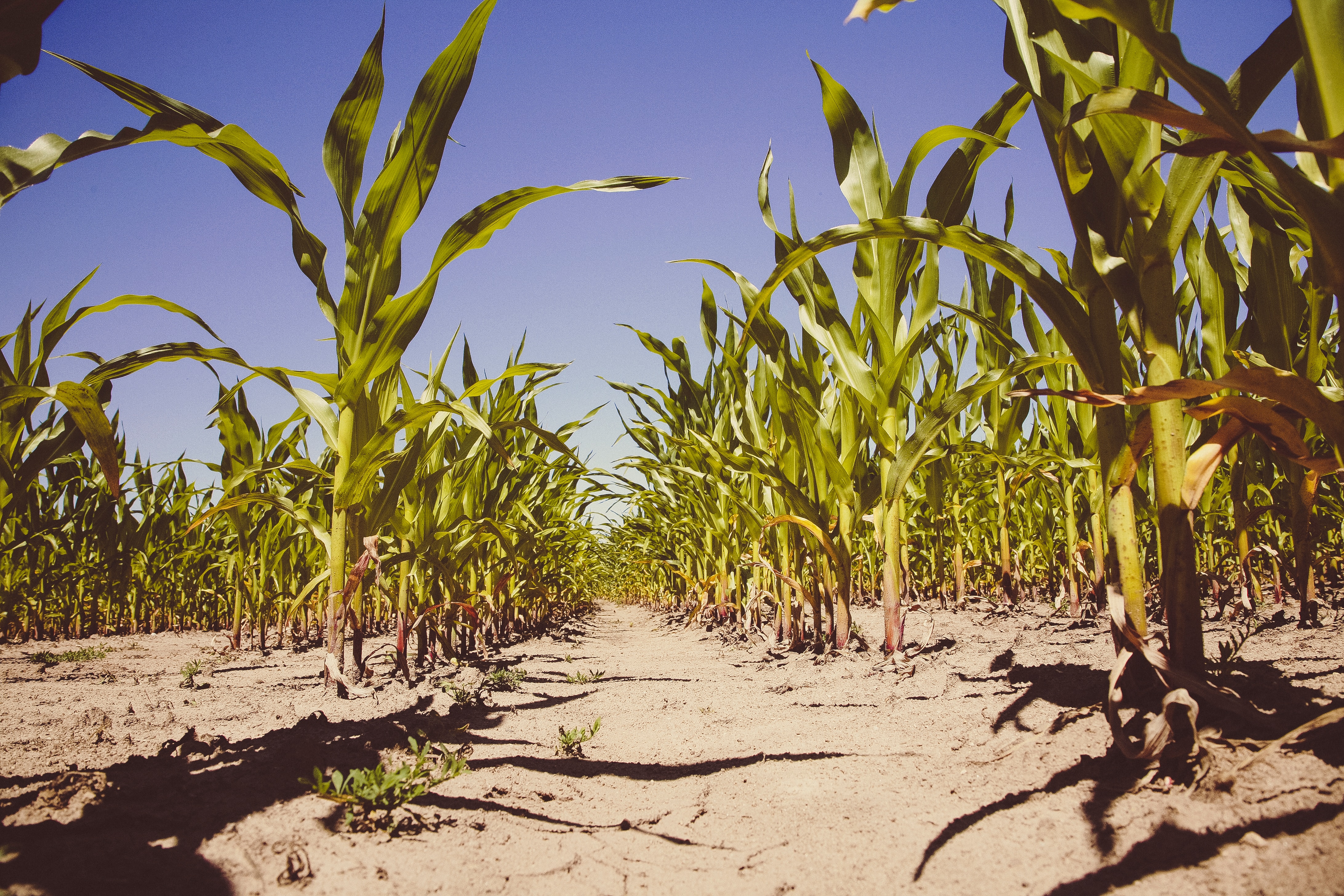
The world’s food systems account for up to 37% of global greenhouse gas emissions, making agriculture one of the most carbon intensive industries on the planet. As the climate crisis escalates, we must embrace a more planet-positive way of producing our food. We can’t limit global overheating to 1.5°C – the goal of the Paris Agreement – and keep our planet habitable, unless we change the way we farm.
Industrialised farming is prevalent throughout the West – and increasingly common worldwide. Gaining ground from the mid-twentieth century onwards, it was designed to reduce hunger, accommodate growing populations and stimulate economic prosperity. In fact, agricultural production tripled between 1960 and 2015 and saved the lives of millions of people from starvation.
While it continues to feed a large percentage of the growing global population, this kind of farming relies on emissions-heavy practices – like monoculture crop planting, synthetic fertilisers and chemical pesticides. Livestock farming is especially intensive, responsible for double the emissions of plant-based foods. Both industrial and more traditional practices can emit significant levels of carbon dioxide into the atmosphere. Grazing requires a lot of land, which is often cleared by felling forests, and animals confined in industrial farms are fed fodder, which again requires extensive tracts of land. As farm animals are predominantly ruminants, they also produce large quantities of methane – the fastest growing greenhouse gas.
The rising temperatures caused by our emissions are threatening the foundations of our global food system as much as they are contributing to it. As we’ve witnessed with the flooding in Pakistan and the drought in the Horn of Africa, more frequent weather extremes destabilise our ability to grow and produce food. Scientists are already warning of multiple crop failures in the world’s agricultural heartlands.
At COP28 in Dubai, the United Arab Emirates (UAE), we expect food production to be a central theme. We hope decisionmakers will set ambitious targets for agriculture, including a mass mobilisation of low carbon agricultural solutions that will not only cut emissions but also create greater efficiency and security at every stage of production – from planting through to harvest, processing, transportation and cutting food waste.
Fortunately, many such sustainable farming solutions already exist. The circular systems already present in nature are ready to be applied at scale. One option is to shift to more regenerative agricultural methods, such as minimising ploughing which can harm a soil’s structure. This change reduces soil erosion and the leaching of nitrogen into watercourses. There is also vertical farming, which is the practice of growing crops in vertically stacked layers that uses less water and land than traditional farming methods, potentially reducing the level of greenhouse gas emissions.
Another example with huge potential is biochar, a charcoal-like substance that’s made by charring organic materials – like agricultural waste– in the absence of oxygen. This waste product would have otherwise decomposed or been burned, releasing the carbon stored in the organic materials back into the atmosphere. When the biochar is produced, the carbon is instead captured.
When applied to the soil, not only is that carbon sequestered, it also improves soil fertility boosting crop yields. Moreover, it can be added to livestock feed, which has been shown to improve animal health by increasing nutrient intake and reducing the methane emissions caused by ruminant digestion.
As part of a geocentric agricultural strategy that puts the earth at its heart, biochar can create enormous impact and value. At A Healthier Earth, we’re working on a de-desertification initiative in the UAE that uses biochar to build healthy, stable, and fertile soils in the desert.
Located in a famously arid region, the UAE imports 85% of its food, leaving it vulnerable to external markets and supply issues while having an outsized carbon footprint for the food produced. To improve local agricultural productivity and simultaneously sequester carbon from the atmosphere, we are looking to turn green and agricultural waste into biochar. When we apply it to the country’s sandy soils, it boosts their nutrient content and increases their water retention capacity, while locking away carbon from the atmosphere.
In this way, we are looking to expand the UAE’s agricultural production, proportionately reducing water consumption while sequestering carbon. Every hectare of reclaimed desert has the capacity to produce up to five tonnes of wheat. This means that the region is less reliant on food imports and has a more positive impact on global food systems.
Biochar is just one of the many sustainable ways of reducing the agricultural industry’s climate impacts. Decades of industrial farming has saved millions of lives from starvation but also has driven greenhouse gas emissions. The sector has an opportunity to be a crucial part of the solution to climate change. Now is the time to create a better food and farming system – one that works in harmony with nature.